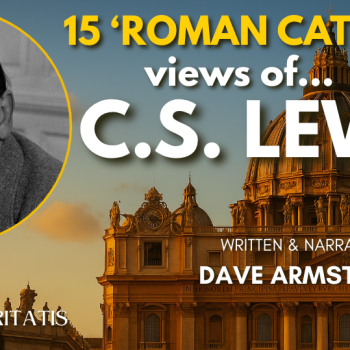
Photograph by “Imaresz” (7-5-13) [Pixabay / Pixabay license]
***
“Ficino” is an atheist, former Catholic, and all-around interesting fellow. This exchange occurred underneath my blog post about sehnsucht. His words will be in blue.
*****
Oh again.
Do we all desire, as the outermost sphere of the heaven, itself divine and itself eternally in motion, desires the unmoved mover, as the earthly lover desires the beloved from across the agora? Desires the unmoved mover, which thinks nothing but its own thinking, and is loved and desired for all eternity?
Habet Acht. Habet Acht. Bald entweicht die Nacht.
I understand that Augustine wanted the form of the Beautiful to have a human face. And he found that face in a Palestinian centuries before his own time.
I have been learning, if I desire P, it does not follow that there exists a P. My desire is my desire. Reality is what it is.
Keeping watch, alone, in the night … I am glad that we understand some of the same things. . . .
Aristotle teaches us that we are of one species, and rational soul unites us.
So if you desire food, it proves there is no food out there? If you have sexual desire, that’s proof that sexuality is a myth and a figment of your imagination? If you desire a good chat with an old friend, it’s proof that such things are nonexistent? Why should this desire be the only one that has nothing on the other end of it? On what basis can one definitively proclaim that it’s just us and our own brain and has no relation to anything else?
ok, in the light of a rainy morning, I can try to engage in discussions that I was too sad to hold last night. I was emoting more than arguing with your OP.
I’ll leave aside your first three questions, because I think it’s clear that I did not propose any of those “if – then”s.
On the last question, I don’t know enough to defend the “definitively” part. As far as I’ve seen, we don’t need the hypothesis of an occult soul, separable from the body, to explain what we find in life, and I think I’ve lived more harmoniously since jettisoning it.
Your fourth question, if it can be rewritten as “why should my yearning for a lost loved person not be like my desire for food, which aims at an object that exists,” I think one answer is that these are different kinds of desire. Pothos or the like is not identical to orexis. Then, the analogy is a bit off, since I don’t desire the return of a morsel that I already ate. And I do desire to have friends in general, as I desire a supply of food in general. That’s different from wishing a bygone friend were still here or wishing that a particular morsel of food could return.
from a human sense of the numinous it does not follow that, literally, “numen inest.” I think the burden of proof is on the person who claims that there is a divinity there. But the sense that there is something beyond ourselves, and the tendency of mystics to talk as though they experience the oneness of all things, suggests that we have more to learn.
I used to read a lot of German literature – it was my first foreign language I really got into. I never came across the blue flower except perhaps, was it in Novalis?
The first three questions have to do with replies to your statement, “I have been learning, if I desire P, it does not follow that there exists a P.” I didn’t claim that you proposed any of them. They are my responses to your denial of what we call the “argument from desire.”
I don’t think you have overcome the argument at all here. Nothing you have written shows me why a desire for God proves that there is no God, rather than that there is.
Atheists are always demanding proof, proof, proof (and usually in a solely empirical sense). Well, this argument isone of our proofs, which (together with many others, in a cumulative effect) are why we believe in God.
I understand that you don’t or won’t think it has much force, and deny that is is compelling. I agree that it’s not compelling by itself, and I don’t even claim much force for it, but I think it is one valid consideration.
Moreover, it touches upon things that atheists also feel. You have granted that; so has another correspondent of mine a day or two ago. You mention “the sense that there is something beyond ourselves.” Indeed.
That being the case, I’d like to hear the alternate explanations that preclude God as the “resolution” to the longing.
Dave, you are the one making the assertive claim. I don’t think the fact of desire demonstrates the existence of that which is desired.
I know, but that’s not an argument. If you don’t have one, simply say so. But merely saying this has no persuasive power. I continue to seek atheist plausible alternate explanations for these sorts of longings.
I can’t prove there isn’t a God of the sort that classical theism proposes. Christianity seems to be saddled with considerable defeaters, and I think we’re both familiar with discussions about those.
I haven’t studied human religious feeling and experience enough to have a comprehensive explanation of longings for the transcendent. I would think the structure of the experience is heavily influenced by culture. Someone in an animistic society that also worships ancestors might not be accurately described as longing for the same thing that, say, Matthew Arnold may have longed for. I don’t know.
Members of my family claimed to have had mystical and/or religious experiences. Some of them were or are charismatic Protestants. Another one was a sort of Vedanta/Jungian/Meister Eckhart amalgam of a mystic. Their “doctrinal” beliefs differed on many important points. There was another one who made various prophecies – which did not prove true. I came to discount what I can only loosely call religious experience as a source of truth.
Anyway, this is the best I can do. I don’t have a worked-out theory about Sehnsucht.
ETA: when I was a Christian I received what we called the Baptism of the Holy Spirit, spoke in tongues, and so on. As far as I know, such phenomena are explained by appeal to physical and psychological processes. That’s how I look back on it, too. So as you wrote above, I think it’s “just us and our brain.” I can’t prove that there isn’t also a ghost at work in the machine, so to speak.
Lots of people don’t seem to display much yearning for the transcendent. I don’t know what conclusion if any to draw from that.
Over on The Secular Outpost, Joe Hinman has for years maintained that worldwide religious experience is evidence that humans can have some contact with a Ground of Being kind of God that Hinman thinks Paul Tillich has explained better than anyone else (I think I represent Hinman’s views correctly). You may be familiar with some of Hinman’s writings. He has a blog called Metacrock.
Fair enough. I think this is a very interesting and honest comment. For myself, the most plausible explanation for such deep longings seems to me to be that there is indeed a God and a heaven “on the other end.”
I would say that that conclusion is based on analogy (other desires, that all seem to be capable of fulfillment) and (for me) the inadequacy relatively less plausible alternate explanations.
One can always posit mental or psychological dysfunction, sure, but that hardly explains all cases: especially ones from solid, deep thinkers like C. S. Lewis. Something is going on with him.
But I’m glad at least that we both experience “longings for the transcendent.” It’s a common ground. We may disagree on the explanation, but you aren’t doubting the very experience. So it’s a fruitful ground for further potential discussion, I think.
I’d love to have these sorts of discussions on atheist comboxes: if I could ever find one that wasn’t a “feeding frenzy” of insults towards Christians and Christianity. Till I find that, I’m delighted to interact with a few non-insulting atheists who wander over to my page, where I don’t allow insults towards them. Welcome!
Thanks for this discussion! I enjoyed it.
Related materials:
Romantic and Imaginative Theology web page
15 Theistic Arguments (Copious Helpful Resources)
Beauty as a Road to God (Eleonore Stump, 2007) [PDF download]
The Intuitive Conception and Knowledge of God (William P. Alston) [PDF download]
Dialogue with an Agnostic: God as a “Properly Basic Belief” (Dave Armstrong vs. JD Eveland, 2015)
Faith and Reason (Michael Polanyi, 1961)
Christian Faith and Belief (Alexander R. Pruss, 2001)
Michael Polanyi and Tacit Knowledge (Mark K. Smith, 2003)
Does Joy Lead to God?: Lewis, Beversluis, and the Argument from Desire (Edward M. Cook) [PDF download]
The Argument from Desire / Longing for the Existence of God (John M. DePoe) [PDF download]
Jack Meets Gen X: Apologetics of Longing and the Postmodern Mood (Gregory Dunn) [PDF download]
The Argument from Desire (Peter Kreeft, 1994)
Argument From Desire: Do our desires point to something or nothing? (Art Lindsey) [PDF download]
The Bayesian Argument from Desire (Victor Reppert, 2009)
The ontological argument from desire (Alexander R. Pruss, 2010)
Four Arguments for Transcendence (Peter Kreeft, 2008)
*****













